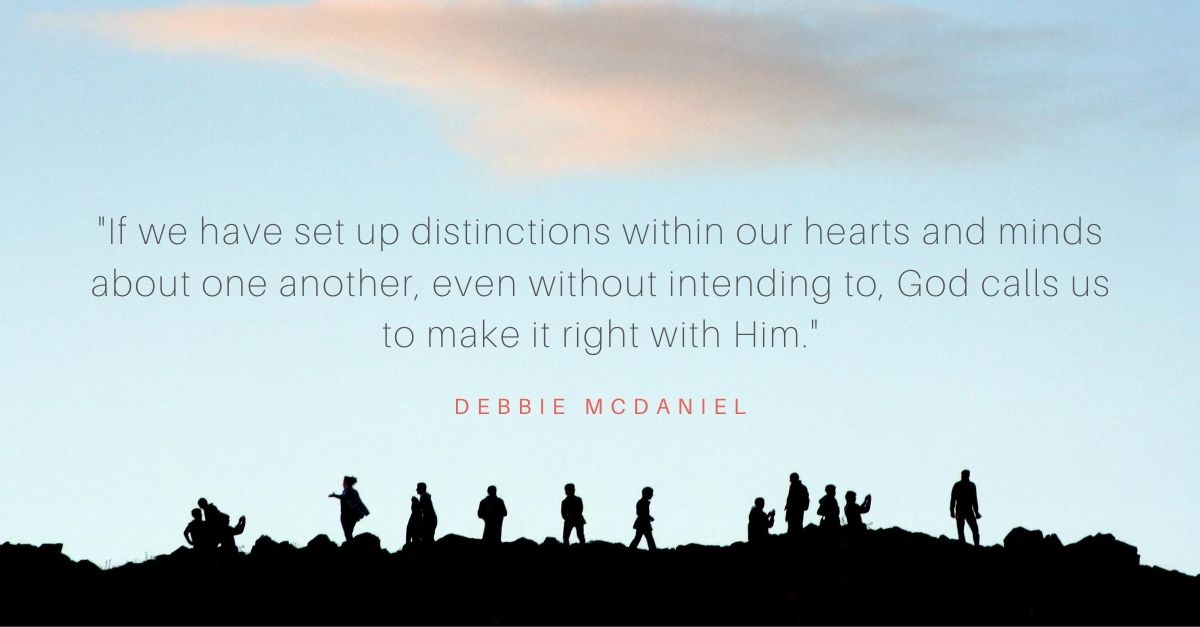Have you ever wondered what the Bible says about racism? In a world where racial tensions can run high, it is important to turn to scripture for guidance and wisdom. Understanding what the Bible teaches us about racism can help us navigate difficult conversations and strive towards unity and love in our communities.
In this blog post, we will explore various verses in the Bible that address the topic of racism. By delving into these verses, we can gain insight into God’s perspective on the matter and learn how we can promote justice, equality, and reconciliation in a world often divided by racial prejudices. Join us on this journey through scripture as we seek to better understand and respond to the issue of racism in light of God’s word.
Exploring Biblical Passages Addressing the Issue of Racism
Verses in the Bible About Racism
Racism is a deeply ingrained issue in societies around the world, causing division and discrimination. However, the Bible offers guidance and teachings on how we should treat one another regardless of race or ethnicity. In fact, the Bible is clear that all people are created in the image of God and should be treated with love, respect, and dignity. Here are some verses in the Bible about racism:
1. Galatians 3:28 – “There is neither Jew nor Gentile, neither slave nor free, nor is there male and female, for you are all one in Christ Jesus.” This verse highlights the unity and equality that Christians should strive for, emphasizing that in Christ, there is no distinction based on race or social status.
2. Acts 10:34-35 – “Then Peter began to speak: ‘I now realize how true it is that God does not show favoritism but accepts from every nation the one who fears him and does what is right.'” This passage demonstrates that God does not show partiality based on nationality or ethnicity, but rather looks at the heart of individuals.
3. Colossians 3:11 – “Here there is no Gentile or Jew, circumcised or uncircumcised, barbarian, Scythian, slave or free, but Christ is all, and is in all.” This verse reiterates the idea that in Christ, there is no room for discrimination or prejudice based on cultural or social differences.
4. James 2:1-4 – “My brothers and sisters, believers in our glorious Lord Jesus Christ must not show favoritism. Suppose a man comes into your meeting wearing a gold ring and fine clothes, and a poor man in filthy old clothes also comes in. If you show special attention to the man wearing fine clothes and say, ‘Here’s a good seat for you,’ but say to the poor man, ‘You stand there’ or ‘Sit on the floor by my feet,’ have you not discriminated among yourselves and become judges with evil thoughts?” This passage emphasizes the importance of treating everyone equally and without favoritism, regardless of their outward appearance or social status.
5. Matthew 7:12 – “So in everything, do to others what you would have them do to you, for this sums up the Law and the Prophets.” Known as the Golden Rule, this verse encapsulates the core principle of treating others with respect, kindness, and fairness, regardless of their background or ethnicity.
As followers of Christ, it is essential to embody these teachings and strive to eradicate racism in all its forms, promoting love, unity, and reconciliation among all people, just as God intended.
Where in the Bible does it talk about the race?
In the Bible, the concept of race is not specifically discussed as we understand it today. However, Galatians 3:28 is a key verse that addresses equality and unity among believers, regardless of race: “There is neither Jew nor Greek, there is neither slave nor free, there is no male and female, for you are all one in Christ Jesus.” This verse emphasizes the idea that in God’s eyes, there is no distinction or hierarchy based on race, ethnicity, or social status.
What does Timothy 2 12 say in the Bible?
1 Timothy 2:12 in the Bible says: “I do not permit a woman to teach or to have authority over a man; she must be silent.” (NIV)
What is the meaning of James 2 9?
James 2:9 in the Bible says:
“But if you show favoritism, you sin and are convicted by the law as lawbreakers.”
This verse emphasizes the importance of not showing partiality or favoritism towards certain individuals based on their social status, wealth, or any other external factors. The use of favoritism highlights the negative consequences of treating people unequally and failing to adhere to the principles of fairness and justice. It serves as a reminder that God calls us to love our neighbors as ourselves without discrimination.
What does Galatians 3 28 mean?
In Galatians 3:28, the Bible verse states, “There is neither Jew nor Greek, there is neither slave nor free, there is neither male nor female; for you are all one in Christ Jesus.” This verse highlights the equality and unity that believers in Jesus Christ share, regardless of their background or social status. The key message is that all followers of Christ are united in Him, transcending societal distinctions that may otherwise divide them.

